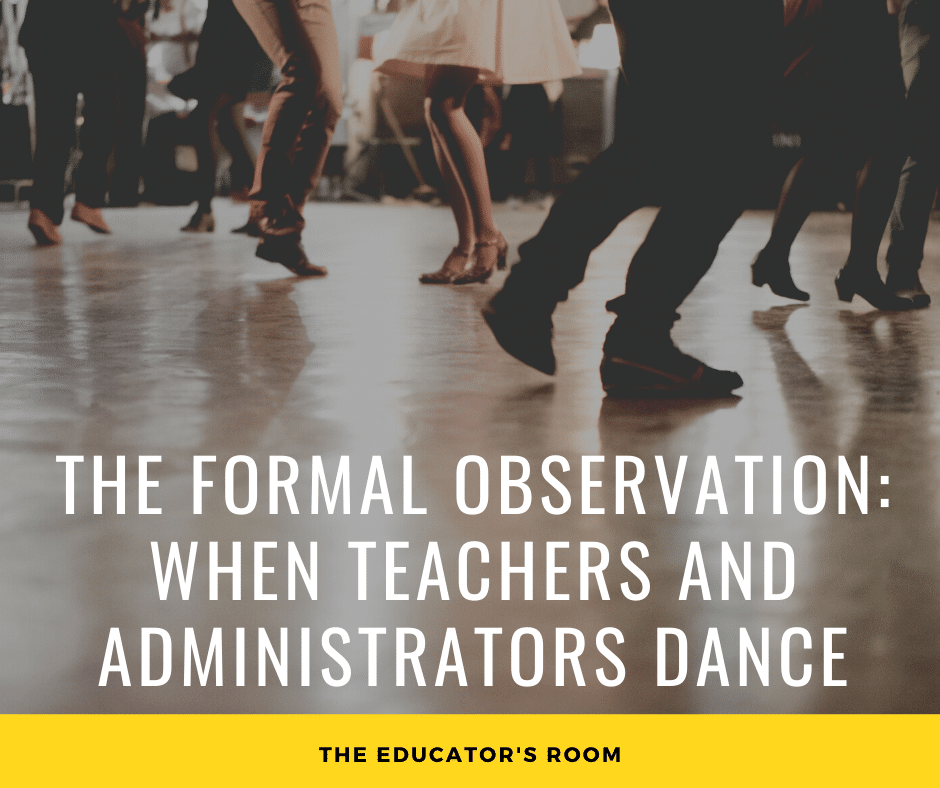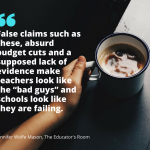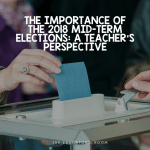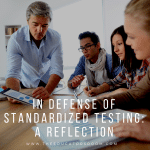Every school year, teachers across the country play a sort of game. It is mostly an activity we play alone, like solitaire. We plan lessons in units to cover roughly 180 instructional days, with the intent that learning occurs. Most tenured teachers get one to two chances to demonstrate how we play this game and to show that “we got game.” A required, brief walk-through by a random administrator takes place in classrooms in the great state of New York in which I reside. That fifteen-minute interlude ensures that the teacher is adequately maintaining structure. In essence, the walk-through answers the question: Is there blood on the whiteboard? In other words, is classroom control demonstrated? Does this teacher have visible routines and protocols? Do the students appear engaged? What is the climate of the learning environment?
While walk-throughs are simple spot-checks, formal observations require much more time and consideration. Under many district contracts, a teacher must submit a formal lesson plan, meet with her administrator for a pre-observation conference, demonstrate the lesson to the administrator on an agreed-upon time, and finally have a post-observation meeting. This formal observation dance takes place during the teacher’s preparation time, often needs to be rescheduled, and is mostly ineffective at impacting teaching and learning.
If you teach in a typical school, you may need to adjust to changing your dance partner often, sometimes every year, occasionally mid-year. Having danced with over fifteen administrators in twenty-five years of my career, I can only name two who helped me hone my craft. Most have patted me on the back, checked off the box on their to-do list, and moved on to the next teacher’s observation.
[bctt tweet=”The current system of spot-lighting one brief moment in 180 days is lacking in both substance and purpose” username=””]
I am desperate for an instructional leader who will challenge my methods and help me dig deeper into my pedagogy. Although I might be intimidated by constructive criticism, the current system of spot-lighting one brief moment in 180 days is lacking in both substance and purpose. The accountability movement had an opportunity to reform the “dog and pony” show. Unfortunately, a flawed observation rubric took the place of authentic alternatives like teacher goal setting and collaborative coaching. Tenured teachers feel secure but need challenges and opportunities for professional development that are not a workshop located outside of their classroom. Teachers need autonomy, collaboration, and support. In this “dance,” teachers should lead.
The worst part of the “dance,” that is, the observation process, is that mediocre teachers do not improve, and ineffective teachers remain in the profession. Most formal observations last only one class period, so that almost anyone can demonstrate competency. Tenured or untenured, most adults can deliver a coherent lesson to retain employment.
Improving the education system includes rearranging it. High stakes testing, merit pay, and educational reform have neither standardized nor enhanced teaching and learning. Instead, the process has forced a mass exodus of teachers and failed to recruit the nation’s youth into the profession. Teachers need efficacy. Teachers need to grow and expand their craft. Teachers want to demonstrate to administrators evidence of student work, student retrieval practice, and mastery. The old-fashioned formal observation lacks opportunities to examine student learning because it focuses on the teacher, and it happens in a vacuum. In essence, the music of classrooms needs to include evidence of learning and student production–it needs a new beat so that the formal observation has a modern dance.






